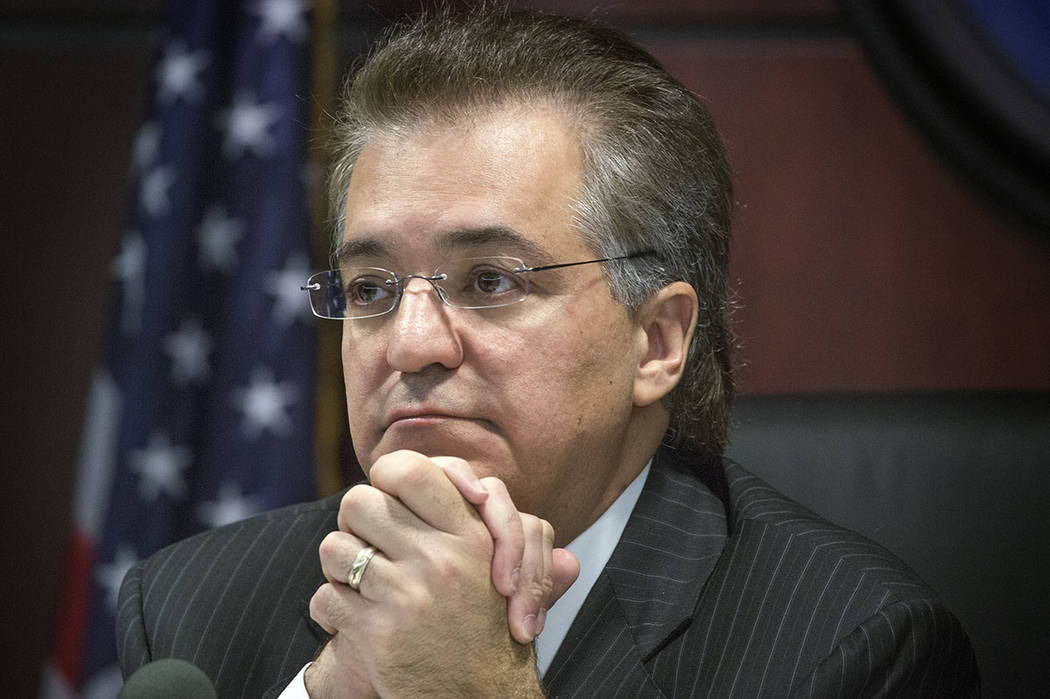Lawmakers tweak policy on gaming applicants

Late in the recently concluded Nevada legislative session, lawmakers revisited and modified policy from an era of our state’s storied gambling past.
And by all accounts, it’s a positive step for the state and the industry.
In the 1940s and ’50s, gaming flourished in Nevada, thanks, in part, to the gangster element that ran the casinos.
There’s a great illustrated history of that era at the Mob Museum — the Museum of Organized Crime and Law Enforcement — in downtown Las Vegas.
The 1950s were the beginning of the end for the mob as state leadership recognized the need to provide above-board games and a safe environment for the people traveling to our desert oasis.
The Gaming Control Act, which included policies designed to drum out the criminal element, was approved by the Nevada Legislature in 1959. One of the key features was a system that enabled the three-member state Gaming Control Board to make recommendations on all aspects of gaming license applicants. The board’s recommendations would go to the five-member Nevada Gaming Commission for final consideration.
The board could recommend approval of a licensee or denial — and denial was the kiss of death.
Because existing licensees were not permitted to conduct business with denied applicants unless they received special permission from the board chairman, winning approval was essential to anyone who wanted a gaming career — and that’s how regulators were able to drum out the bad element from the state.
The commission had only three options on a board recommendation. They could agree with the denial, overturn it by a unanimous reversal vote or send it back to the board which, presumably, wouldn’t have much appetite for changing its mind.
For an applicant who received a board recommendation for denial, the strategy would be to go to the commission, gauge which way it was leaning during the hearing, then quickly move for a withdrawal if it didn’t appear the applicant had a chance of being approved.
The lack of options bothered current Gaming Commission Chairman Tony Alamo, who lobbied this year for passage of Assembly Bill 75, legislation that gives the commission a new option on recommendations it receives.
Now, in addition to denying, reversing the denial or remanding the matter to the board, the commission will be able to vote to reject an application.
Under terms of a rejection, an applicant wouldn’t suffer the same consequences as a denied applicant.
Former Control Board member Mark Clayton, an attorney with the Las Vegas office of Greenberg Traurig, told clients in a newsletter that it’s a welcome change.
“Chairman Alamo noted that a denial of an application has severe consequences to the individual or entity,” Clayton wrote with his associate, Erica Okerberg.
Alamo decided to lobby for change.
“You know who we were trying to get out back then,” Alamo said in an interview. “So my whole point, which has been bothering me for 10 years, is that society has changed. The culture has changed.
“Some people should not be in gaming, but do you want the stigma of a denial to hang with you?”
Alamo was successful and Gov. Brian Sandoval signed AB 75 into law on May 23. It takes effect July 1.
Contact Richard N. Velotta at rvelotta@reviewjournal.com or 702-477-3893. Follow @RickVelotta on Twitter.